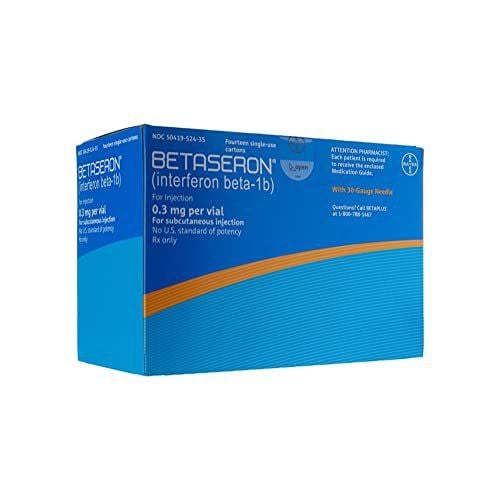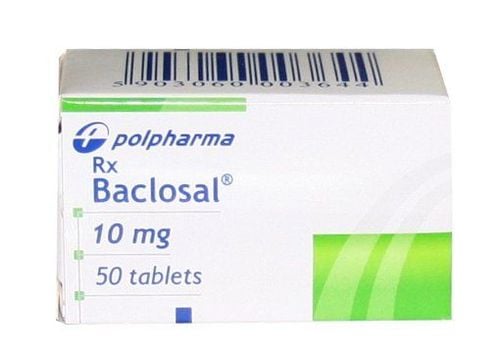This is an automatically translated article.
Post by Master, Doctor Mai Vien Phuong - Gastrointestinal Endoscopy - Department of Medical Examination & Internal Medicine - Vinmec Central Park International General Hospital.
H.pylori bacteria are mainly involved in the development of gastrointestinal diseases, some studies have shown that this infection can also affect the development and severity of these diseases. neuromuscular manifestations, such as multiple sclerosis, Alzheimer's disease, Parkinson's disease, and Guillain-Barré syndrome.
1. H. pylori and multiple sclerosis
Multiple sclerosis (MS) is a chronic inflammatory disease affecting the central nervous system (CNS), causing multifactorial immunoregulatory dysregulation involving genetic and environmental factors. For the first time, in 2007, a negative association between H. pylori infection and MS was reported. In that case, a Japanese study included patients with spinal MS (OSMS), common MS (CMS), and a healthy control group (HC). The results showed that H. pylori serosensitivity was significantly lower in CMS patients (22.6%, P < 0.05) when compared with HC (42.4%, P = 0.0180) and fish. OSMS kernel (51.9%, P= 0.0019). Subsequently, different studies investigated such an association and two meta-analyses were performed to evaluate the possible protective effect of h.pylori infection on MS. The first group included 1902 patients and showed a significantly lower infection rate in SM patients when compared with controls of the same age and sex (OR = 0.59, 95% CI: 0.37) –0.94, P = 0.03). The second study included 2806 subjects and also showed a reduction in the overall prevalence of h.pylori infection in MS patients (24.66% vs 31.84%, OR: 0.69, 95% CI: 0). ,57-0.83, P < 0.0001) Among the various hypotheses that attempt to justify H. pylori infection as a protective factor for MS, the hygiene hypothesis suggests that exposure to agents Microbial multiplication in childhood regulates the human immune system, avoiding the development of immune hypersensitivity in adulthood. Another mechanism perhaps involved in this process is the inhibitory induction of H. pylori on Th1 and Th17 immune responses by FoxP3-positive regulatory cells. Interestingly, the immune response against H. pylori infection also seems to be affected by MS. In a cohort consisting of 119 MS patients (most of whom had acute relapsing-remitting MS), it was demonstrated that H. pylori-positive patients exhibited a decreased humoral response to the protein of H. pylori. bacteria HP986. However, another study investigated the production of antibodies against H. pylori VacA (toxin vacuole A) in patients with secondary advanced MS who presented such immunoglobulins often more frequently when compared to healthy subjects. This suggests that H. pylori antigenic recognition by antibodies is influenced not only by the positive status for EM, but also by the manifest form of this autoimmune disease.2. H. pylori and Alzheimer's disease
Alzheimer's disease (AD) is a neurodegenerative disorder with progressive cognitive decline and gradual involvement of discrete memory as its most common clinical manifestation. Shindler-Itskovitch et al., 2016, performed a meta-analysis including 13 observational studies on the association between H. pylori and dementia. The results showed that h.pylori bacteria - positive patients had a higher risk of dementia than those without the disease (OR = 1.7, 95% CI: 1.17-2.49). However, when only AD patients were considered, this association was not statistically significant (OR = 1.39, 95% CI: 0.76-2.52). Despite this, a more recent meta-analysis identified a significant positive association between H. pylori infection and AD in the Asian population (OR = 1.60, 95% CI: 1.20-2) ,15). Several mechanisms are thought to be involved in the increased risk of AD in individuals with H. pylori infection. Vitamin B12 deficiency due to gastric changes caused by infection leads to increased homocysteine levels, leading to dementia. Another hypothetical mechanism for this association is aberrant hyperphosphorylation of the TAU protein due to H. pylori infection. That protein is involved in AD-linked neurodegeneration. In addition, Kountouras et al. [110], showed that H. pylori infection positively affects the ApoE polymorphism known as genetic risk factor for AD. Several theories suggest that H. pylori can reach the brain, leading to changes that trigger AD. One of them is based on the bacteria H. pylori's ability to achieve the sense of smell through the mouth-nose-scent through. Such a bulb is responsible for the decoding of olfactory signals in the brain, and its dysfunction is associated with lip neurodegeneration. Another hypothesis is that bacterial entry through the ruptured blood-brain barrier (HEB) inside leukocytes, triggers inflammation with release of chemical mediators. All of the above-mentioned H. pylori ways of accessing the central nervous system may allow H. pylori to exercise its potential neurodegenerative action in that environment.3. H. pylori and Parkinson's disease
Parkinson's disease (PD) is the second most common progressive neurodegenerative disorder in the world, and tremor, postural instability, and dyskinesia are the preeminent outcomes. However, among other reactions in the human body, impaired gastrointestinal function, such as constipation, is an important consequence of that disease, and they often represent the first manifestations of PD. The presumed link between Parkinson's disease and the gastrointestinal tract has prompted researchers to further investigate that relationship, hypothesized that microorganisms from the digestive system may influence PD pathophysiology. Against this backdrop, a recent meta-analysis including 23 studies investigated the impact of viral, fungal, and bacterial infections on PD risk and found a positive association between H. pylori infection and that disease (synthetic OR, 95% CI: 1.653, 1.426-1.915, P < 0.001). Furthermore, another meta-analysis including 7 studies found that H. pylori infection was also associated with clinical severity of PD, as H. pylori-positive patients had worse scores on experience assessed by the Unified Parkinson's Disease Rating Scale (UPDRS) [mean ± SD, 95% CI: 6.83, 2.29-11.38, P = 0.003]. In addition, the last study observed an improvement in the UPDRS-III score in PD patients after H. pylori eradication (mean ± SD, 95% CI: 6.83, 2.29-11) .38, P = 0.003). It is important to emphasize that these studies have some limitations. First, the included studies used different diagnostic criteria for PD, and the methods used to detect H. pylori infection also varied. The use of ELISA for the diagnosis of H. pylori infection in some of these studies may have overestimated the number of positive individuals, since that test is often a reagent even when performed many months after its availability. possibility of spontaneous eradication of H. pylori . Last but not least, H. pylori infection is closely related to various socioeconomic factors, including hygiene. Therefore, some of the associations between H. pylori and PD may be correlational and not causal. It is known that H. pylori infection increases the synthesis of 1-methyl-4-phenyl-1,2,36-tetrahydropyridine (MPTP). Such substances can cause dopamine depletion, as well as damage to the matrix, which can lead to PD. Also, H. pylori infection has been found to decrease absorption of levodopa, which has the potential to worsen PD symptoms.4. H.pylori and Guillain Barre syndrome
The association between Guillain-Barré syndrome and H. pylori infection has been studied extensively and recently, a meta-analysis on the issue confirmed this association, conducting an anti-H. pylori in serum and cerebrospinal fluid. (CSL). When first analyzed, antibody prevalence was significantly higher in patients with GBS than in those without GBS (OR = 2.31, 95% CI: 1.30-4.11, P = 0.004). In the CSL analysis, there was also a strong positive association between GBS and anti-H. pylori IgG.Please dial HOTLINE for more information or register for an appointment HERE. Download MyVinmec app to make appointments faster and to manage your bookings easily.
References:
Santos MLC, de Brito BB, da Silva FAF, Sampaio MM, Marques HS, Oliveira e Silva N, de Magalhães Queiroz DM, de Melo FF. Helicobacter pylori infection: Beyond gastric manifestations. World J Gastroenterol 2020; 26(28): 4076-4093 [PMID: 32821071 DOI: 10.3748/wjg.v26.i28.4076 ]













